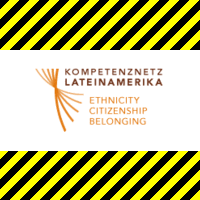Mario Peters, M.A.
Research Project
Urbanization and Imagination in Brazil - Housing Politics, Visions of the City, and Strategies of Space Appropriation in Belo Horizonte, Minas Gerais, c. 1920-1970
During past decades housing segregation has become a visible consequence of the rapid global urbanization process. In the Brazilian case, this phenomenon has aroused much attention in international media. The unequal distribution of urban living space demonstrates the ambivalent social reality in Brazil. So far, problems of growing social inequality remain to be solved. The unequal distribution of living space has historically been closely linked to municipal housing politics.
The research project focuses on the ambivalent development of urban housing politics in Belo Horizonte, the capital of Minas Gerais, from c. 1920 to 1975. It questions the degree to which dominant stereotypic social representations and authoritarian ideas about certain urban quarters influenced the formation of housing politics. Less privileged bairro inhabitants and favelados protested against official housing politics. My research focuses on their strategies to appropriate space, as associative activism, irregular occupations and self-help housing (mutirão). The project further contests the interpretation of these strategies as immediate reaction to disadvantages, generated by housing politics and spoiled by stereotypic imagination. Moreover, housing policies’ impacts on the inhabitants’ daily lives will be investigated.
Publications
-
Peters, Mario: Formen des Sklavenwiderstandes. Die Region Bahia in Brasilien 1790–1850. aventinusvaria Nr.27 [27.05.2011] / PerspektivRäume Jg. 1 (2010), H. 2, S. 52-77, in: aventinus, URL: http://www.aventinus-online.de/no_cache/persistent/artikel/8598/
